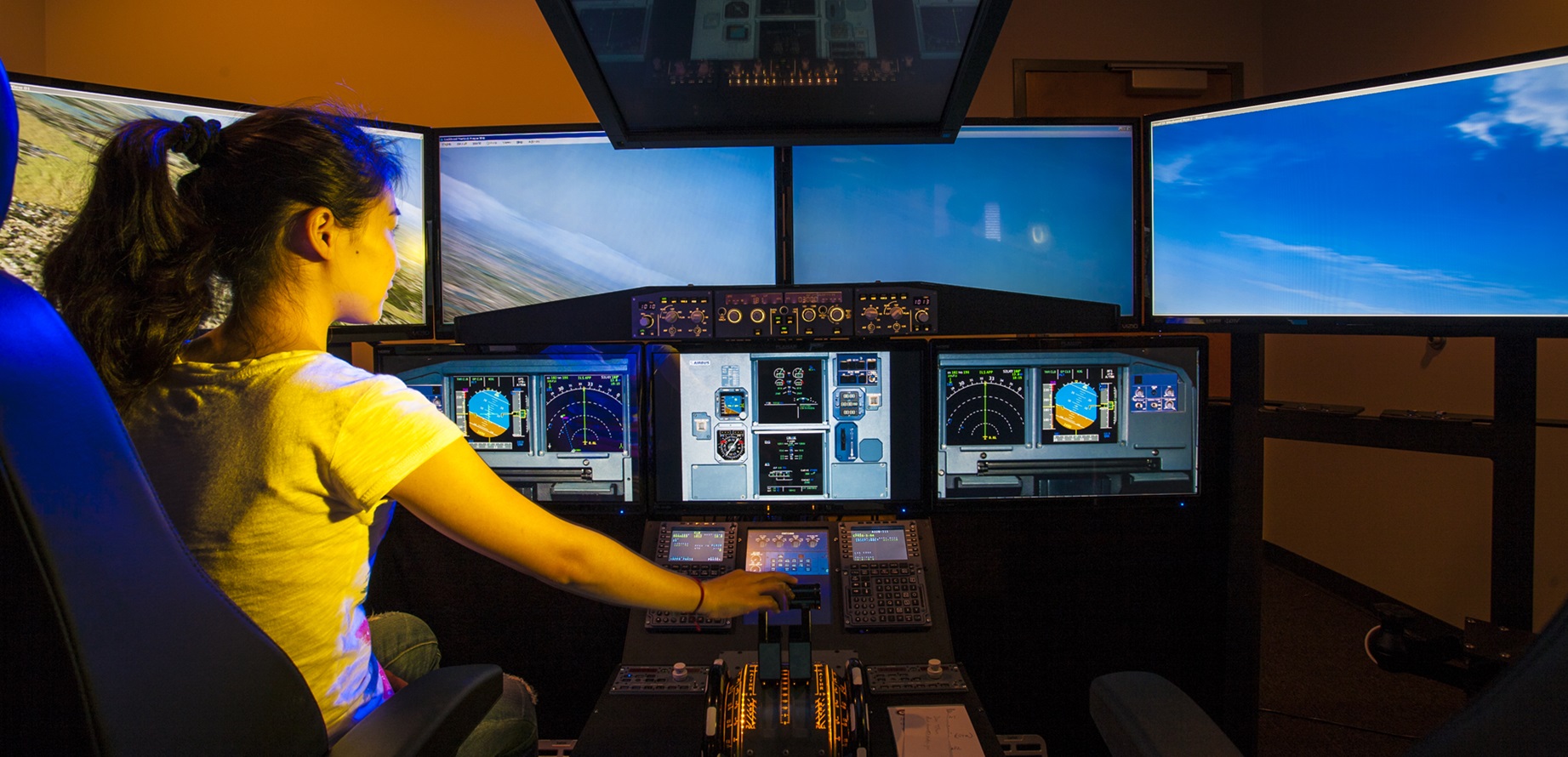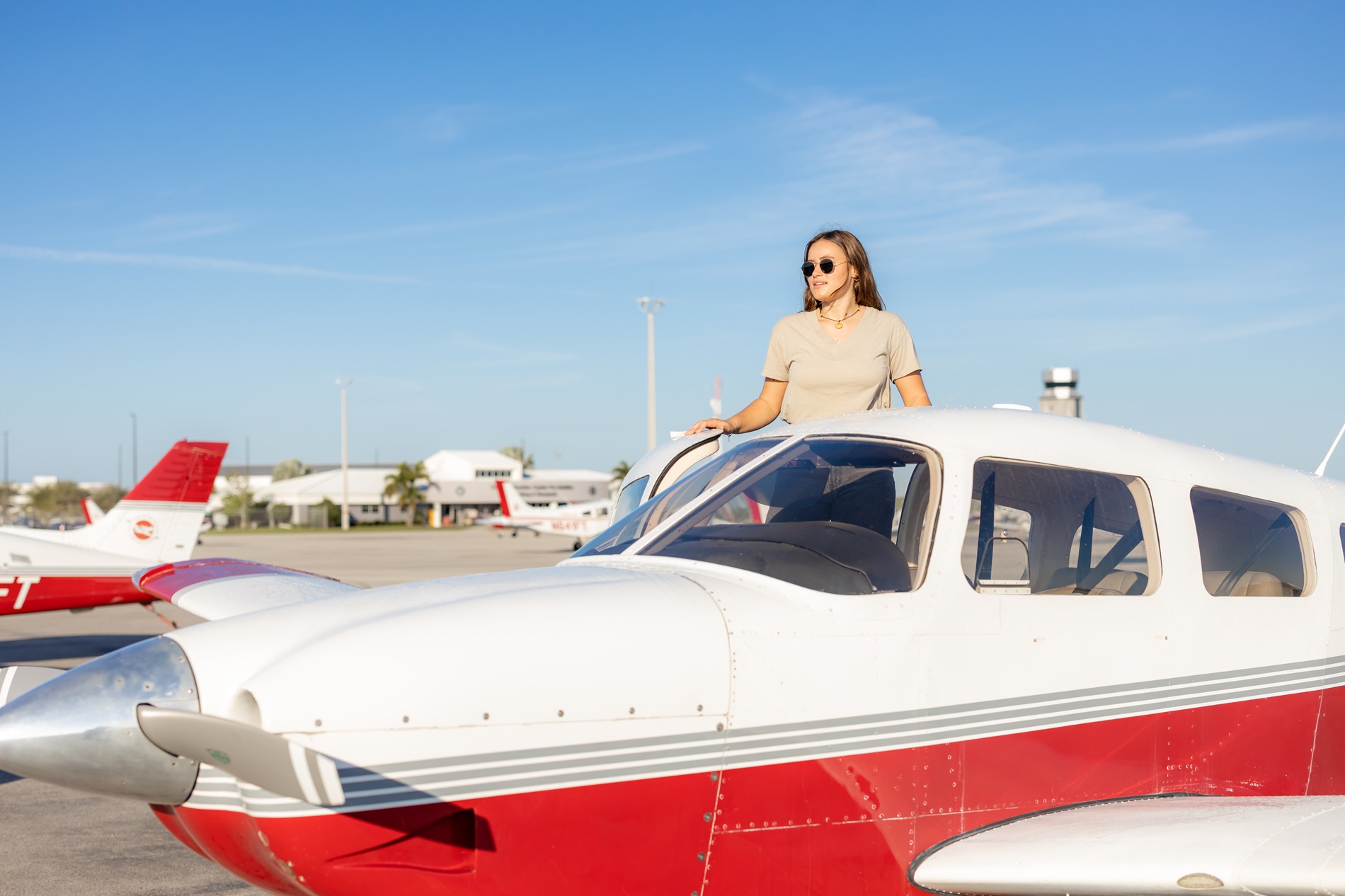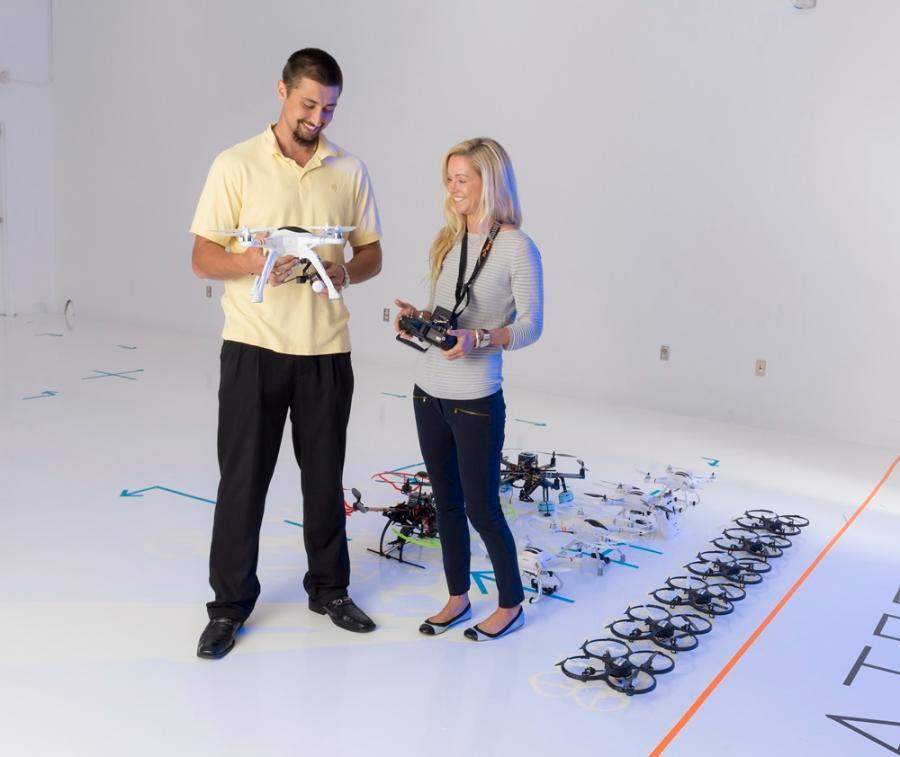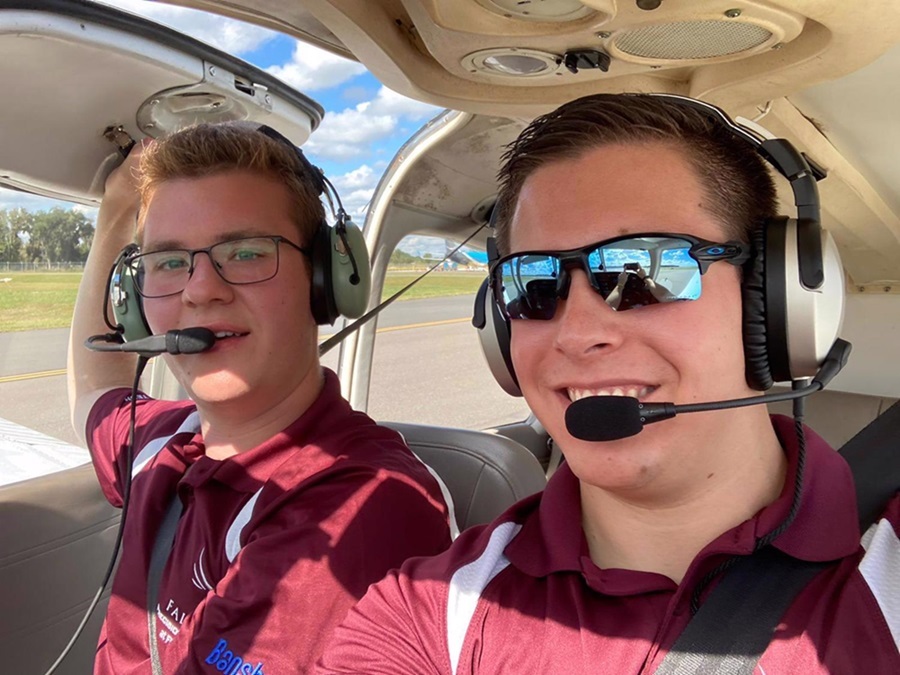Florida Tech is a world-class aeronautics school—and one of the top institutions for engineering and science. Students benefit from our excellent facilities and aircraft fleet and a wide range of high-tech tools for hands-on learning and research, from wind tunnels and air quality monitoring systems to advanced modeling software.
At the Emil Buehler Center for Aviation Training and Research, just minutes from campus at Melbourne Orlando International Airport, students have access to our state-of-the-art aircraft fleet, featuring Piper planes equipped with cutting-edge glass cockpits. The center also houses facilities for weather and flight planning, simulators and more, providing a comprehensive environment for aviation training and research.
The College of Aeronautics’ Skurla Hall houses a first-rate computer lab equipped with a wide range of applications and networking capabilities, offering hands-on learning in aviation subjects such as airport design and planning.
Using computer-aided design (CAD) programs, you can complete projects in designing airports and airport terminals, and conduct experiments, such as noise studies. In the Basic Aviation Training Device (BATD) Lab, you can fly desktop simulators under the guidance of a flight instructor and practice air traffic control (ATC) operations, enhancing your aviation skills.

 Give to Florida Tech
Give to Florida Tech 



